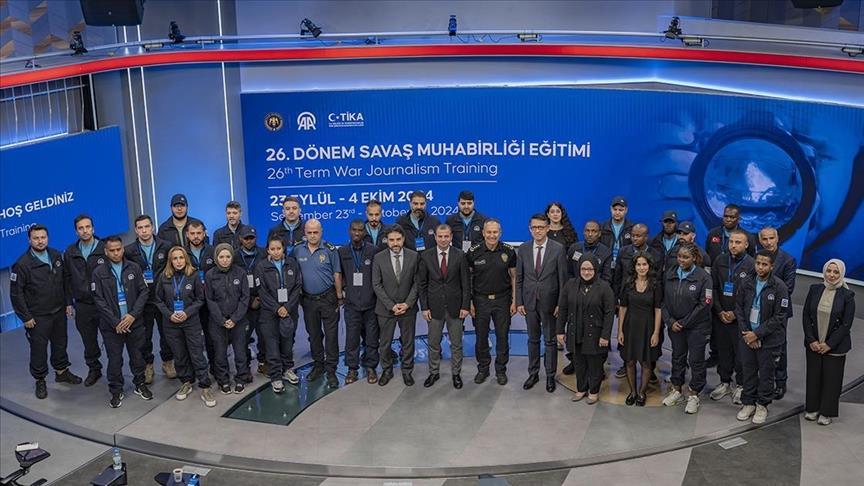Anadolu, in cooperation with the Police Academy and the Turkish Cooperation and Coordination Agency (TIKA), started the 26th term of war journalism training on Monday.
The two-week course, which includes 25 participants from various countries, aims to train correspondents for missions in wars, disasters, and extraordinary situations.
A ceremony was held at the Anadolu headquarters in the capital Ankara to mark the start of the new training period.
Yahya Bostan, Anadolu's academy and publications coordinator, said significant experience has been gained from the training conducted so far, and the training content is continuously updated and expanded.
Anadolu has trained 558 journalists so far, he said, adding that among the participants from 14 countries is Mustafa Hassona, a photojournalist working in Gaza, where the Israeli onslaught has been ongoing since last October.
Emphasizing that “international law often remains merely on paper” in Gaza, Bostan said: “With digitalization, racism is rising significantly in all countries, particularly in the West. We are in a complex world system."
"Israel is committing genocide in Gaza. The risk of these conflicts spreading is very high, and there is also significant terrorism and instability in other parts of the world."
"It is our duty to voice the truth in times of war and disaster, and we must remain standing while doing this," he said.
TIKA's Vice President Rahman Nurdun said that war correspondents have the responsibility not only to report the news but also to witness humanity's most challenging moments and convey those experiences objectively.
Highlighting the importance of war journalism, Nurdun said: "In war journalism training, participants will have the opportunity to develop a wide range of skills."
Fatih Inal, deputy director of the Police Academy, said that war journalism training is the only internationally recognized certification program in the world.
Israel has continued a brutal offensive on Gaza following a cross-border attack by Hamas last October, despite a UN Security Council resolution calling for an immediate cease-fire.
More than 41,400 people, mostly women and children, have since been killed and more than 95,800 injured, according to local health authorities.
The Israeli onslaught has displaced almost the entire population of the territory amid an ongoing blockade that has led to severe shortages of food, clean water, and medicine.
Israel faces a genocide case at the International Court of Justice for its actions in Gaza.
